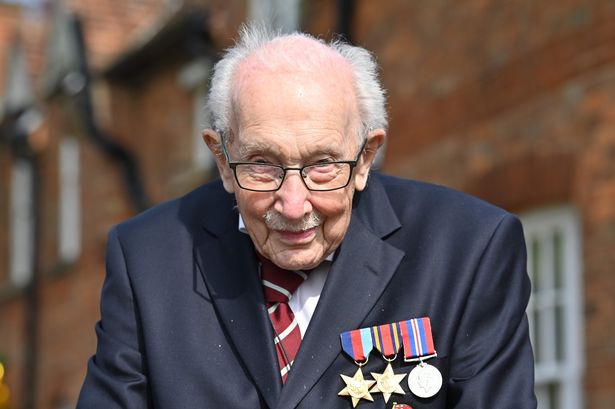IELTS Listening Practice: Short Answer Questions. These questions can appear in any section of the IELTS listening test. You are required to listen to the recording and spot the answer to the question given.
Read through the questions before you listen to the audio. Predict the type of answer you need to listen for and underline any key words that might help you find the answer. Also prepare paraphrases as this is the key to IELTS.
IELTS Listening Short Answer Question Tips
- Check the title of the listening because they will tell you the type of language you are likely to hear.
- Note keywords in the question that:
- tell you the type of word you need to listening for, such as a noun, verb, adjective or number
- indicates the answer is coming in the recording
- Words given in the question are likely to be paraphrased.
- Pay attention to the word count for the answer.
- Get the answer from the recording – you need the precise word or words.
- The answers come in order.
IELTS Listening Short Answer Questions Practice
Listening Practice 1
Dashwood Sports Center
Questions 1-5: Write no more than two words and/or a number.
1. What time does the center open?
2. What kind of sports equipment does it sell?
3. How long do you have to return faulty items?
4. Who can give advice?
5. What time does it close on Tuesdays?
RECORDING:
.
TRANSCRIPT & ANSWERS
Click below to reveal the transcript and answers.
Transcript1. 9am
2. professional / professional equipment
‘…there’s a small shop which sells sports equipment. I’m afraid it’s rather pricy but the quality is excellent as it sells only professional equipment.’
3. 3 days
‘…you’ll only have three days to get a refund if there’s anything wrong with it.’ (faulty = anything wrong with it)
4. John Roberts (capital letters not needed)
5. 9pm
‘…on Tuesdays we have late night opening until 9pm’. This question was a trap because a closing time was given at the beginning of the audio but you can’t answer question 5 before question 2, so you need to wait for another answer to come. Also the information at the beginning was about a daily closing time not specifically on Tuesdays. This is a very common trap in IELTS.
.
*********************
Listening Practice 2
Superbugs
Questions 1-8: Answers should be no more than two words and/or a number.
- Which mammals are often considered to be the strongest?
- How much weight in comparison to their body’s weight can a leaf-cutter ant pull?
- What animal was present on Earth when ants emerged?
- What are ant societies called?
- How much of the Earth’s biomass do ants make up?
- A dung beetle can pull the equivalent to what as a human being?
- What type of sound do dung beetles mostly use as communication?
- How much cattle dung are dung beetles thought to bury in some areas of Texas?
RECORDING:
.
Vocabulary Focus Questions
Questions 9-13
Listening again to spot the paraphrases in the recording for the following words. Your answer should be one word only. These types of questions do NOT come in IELTS listening, but they are a great practice exercise for you.
- 9. impressive
- 10. pieces
- 11. lorry
- 12. audial
- 13. waste
.
TRANSCRIPT & ANSWERS
Click below:
TranscriptTranscript: When we think of animal species that are exceptionally strong, we usually think of large animals such as the elephant or rhino. These are formidable mammals that from their size are clearly so much stronger that we are. However, when it comes to strength in relation to size, we need to look at insects and in particular ants and beetles.
The leafcutter ant can carry over 20 times its own body weight in its jaws, which are known as mandibles. When they come across a leaf that is too heavy for them to carry, they cut the leaf into more manageable fragments. If we compare this to human strength it is similar to a human being lifting a truck with their teeth.
Ants are interesting for many reasons. They had already emerged about 90 million years ago at the time of the dinosaurs. Much later on, their numbers seem to grow as they developed into organised societies or as we know them, colonies. They now represent about 15% of this planet’s biomass.
However, the dung beetle is even more remarkable for its strength in relation to body weight. The dung beetle can pull weights which are in excess of 1,000 times their own body weight. If we translate this into human strength. It is like one person pulling six double-decker buses.
Unlike many insect or animal species, the dung beetle inhabits a range of habitats and can be found in most places on the planet. Their communication techniques mainly seem to focus on acoustic vibration. They are also great recyclers and play an important part in processing waste. For example, it is said that in parts of Texas, dung beetles are responsible for burying 80% of cattle excrement.
- ELEPHANT RHINO
- 20 TIMES
- DINOSAURS
- COLONIES
- 15%
- 6 DOUBLE-DECKER BUSES
- (ACOUSTIC) VIBRATION
- 80%
- FORMIDABLE
- FRAGMENTS
- TRUCK
- ACOUSTIC
- EXCREMENT
.
RECOMMENDED FOR YOU
More Short Answer Question Listening Practice, click here
ALL LISTENING PRACTICE LESSONS & KEY TIPS
.





